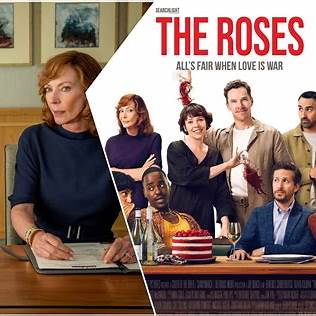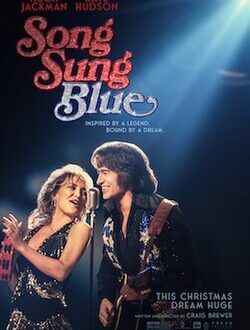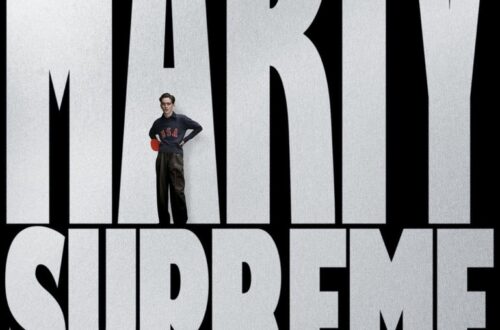The Roses–directed by Jay Roach and starring two dramactic heavyweights–arrives with a premise that feels both timeless and unnervingly contemporary, a story about passion curdling into rivalry, and devotion eroding , namely Benedict Cumberbatch and Olivia Colman–destruction. Directed with a sharp eye for irony and a flair for excess, the film is a reinvention of the classic marital breakdown narrative, balancing satire with tragedy until it collapses into something unsettlingly cathartic.
The story follows Oliver and Barbara Rose, a seemingly perfect couple whose charmed life unravels under the weight of pride, stubbornness, and unspoken resentment. What begins as a portrait of domestic bliss quickly shifts into a battle of wills, each partner refusing to cede ground as their marriage disintegrates. Their once-idyllic home becomes the battlefield, every object—from cherished keepsakes to expensive furniture—transformed into weaponry in a war neither is willing to lose.
The performances drive the film’s success. The leads embody their roles with ferocity and precision, capturing the slow burn of disdain that grows from sly glances and clipped words into all-out carnage. There is a magnetism to their chemistry even as their affection curdles; the audience cannot look away as love mutates into obsession. Each scene crackles with energy, a tug-of-war that is as funny as it is horrifying.
Visually, the film thrives on contrast. Early sequences are bathed in warm, inviting tones, reflecting the charm of the Roses’ domestic life. As the story descends into chaos, the lighting grows harsher, the framing tighter, as if the house itself is closing in on its inhabitants. The set design plays an equally vital role, transforming the couple’s luxurious home into a claustrophobic arena of destruction. By the end, the house stands as both a literal ruin and a symbolic tomb for what once was.
The tone of The Roses is what sets it apart. It is not a straightforward drama, nor a simple comedy. Instead, it oscillates between laughter and shock, daring the audience to find humor in pettiness and absurdity even as the consequences turn brutal. This balance is risky, but it pays off, creating a unique experience that unsettles precisely because it reflects truths about pride and ego that many viewers will recognize.
The screenplay is tightly constructed, with dialogue that cuts like a blade. Exchanges between Oliver and Barbara feel like sparring matches, brimming with wit but edged with cruelty. The progression from passive-aggressive remarks to outright hostility is handled with care, never rushed, ensuring that the escalation feels both inevitable and horrifying.
Yet for all its bleakness, the film resists nihilism. Beneath the spectacle of destruction lies a cautionary tale about communication, compromise, and the dangers of letting bitterness fester. The Roses’ downfall is exaggerated for dramatic effect, but the seeds of their collapse—misunderstanding, insecurity, unchecked pride—are grounded in reality. That relatability is what makes the film resonate beyond its satirical sheen.
The final act is both inevitable and shocking, a crescendo of destruction that leaves the audience in stunned silence. By that point, the laughter has curdled, and what remains is the sobering recognition of how quickly love can turn toxic when poisoned by ego. It is a conclusion that lingers, equal parts tragic and darkly comic, cementing the film’s impact as both entertainment and allegory.
The Roses is not an easy film to categorize, but that is its strength. It defies the conventions of marital drama, injecting the familiar story of love gone wrong with biting satire and grandiose spectacle. Anchored by powerhouse performances, sharp writing, and assured direction, it is a film that entertains even as it unsettles, one that leaves audiences laughing, gasping, and reflecting in equal measure.
Verdict: The Roses is a wickedly funny and devastating portrait of a marriage turned battlefield, a film that delights in chaos while offering a sobering look at pride, love, and the cost of refusing to let go.




